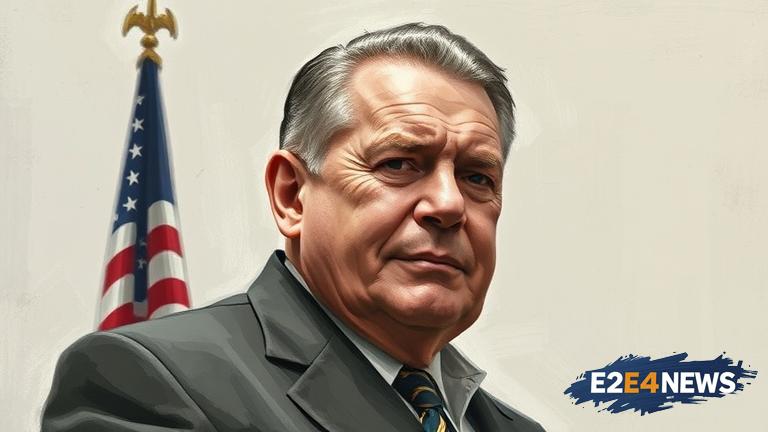Jimmy Hoffa, the infamous American labor union leader, vanished 50 years ago, leaving behind a trail of mystery and speculation. Born on February 14, 1913, in Brazil, Indiana, Hoffa rose to prominence as the president of the International Brotherhood of Teamsters, a labor union that represented truck drivers and other transportation workers. His leadership and charisma helped to grow the union’s membership and secure better wages and working conditions for its members. However, Hoffa’s involvement with organized crime and his eventual disappearance have become the most enduring aspects of his legacy. On July 30, 1975, Hoffa was last seen leaving a restaurant in Bloomfield Hills, Michigan, and despite numerous investigations and tips, his fate remains a mystery. Over the years, various theories have emerged, including speculation about his involvement with the Mafia and the possibility of a mob hit. Hoffa’s complicated legacy extends beyond his personal story, reflecting the complex and often fraught history of labor relations in the United States. His leadership of the Teamsters helped to secure significant gains for workers, but his methods and associations have also been criticized. The labor movement, which Hoffa was a part of, has had a profound impact on American society, shaping the country’s economy, politics, and culture. The legacy of Jimmy Hoffa serves as a reminder of the ongoing struggle for workers’ rights and the complex interplay between labor, capital, and power. As the years pass, Hoffa’s disappearance continues to captivate the public imagination, inspiring numerous books, films, and documentaries. The case remains one of the most infamous unsolved mysteries in American history, with many questions still unanswered. Despite the many investigations and theories, the truth about Hoffa’s disappearance may never be fully known. The impact of Hoffa’s legacy can be seen in the ongoing debates about labor rights, unionization, and the role of organized labor in American society. His story has also been the subject of numerous cultural references, from films like ‘Blood Feud’ to books like ‘I Heard You Paint Houses.’ The fascination with Hoffa’s life and disappearance reflects a deeper interest in the complexities of American history and the human condition. As a cultural icon, Hoffa represents a complex mix of heroism, villainy, and mystery, embodying the contradictions and paradoxes of American society. The search for answers about Hoffa’s disappearance continues, with many hoping that one day the truth will be revealed. Until then, the legacy of Jimmy Hoffa will remain a topic of fascination and debate, a reminder of the power of labor, the complexity of human nature, and the enduring mystery of his disappearance. The story of Jimmy Hoffa serves as a testament to the enduring power of labor and the human spirit, highlighting the ongoing struggle for workers’ rights and social justice. As the labor movement continues to evolve, the legacy of Jimmy Hoffa remains an important part of American history, a reminder of the complexities and challenges of building a more just and equitable society. In conclusion, the disappearance of Jimmy Hoffa 50 years ago has left behind a complex and intriguing legacy, reflecting the many contradictions and paradoxes of American society. His story continues to fascinate and inspire, serving as a reminder of the ongoing struggle for workers’ rights and the importance of understanding the complexities of American history.
